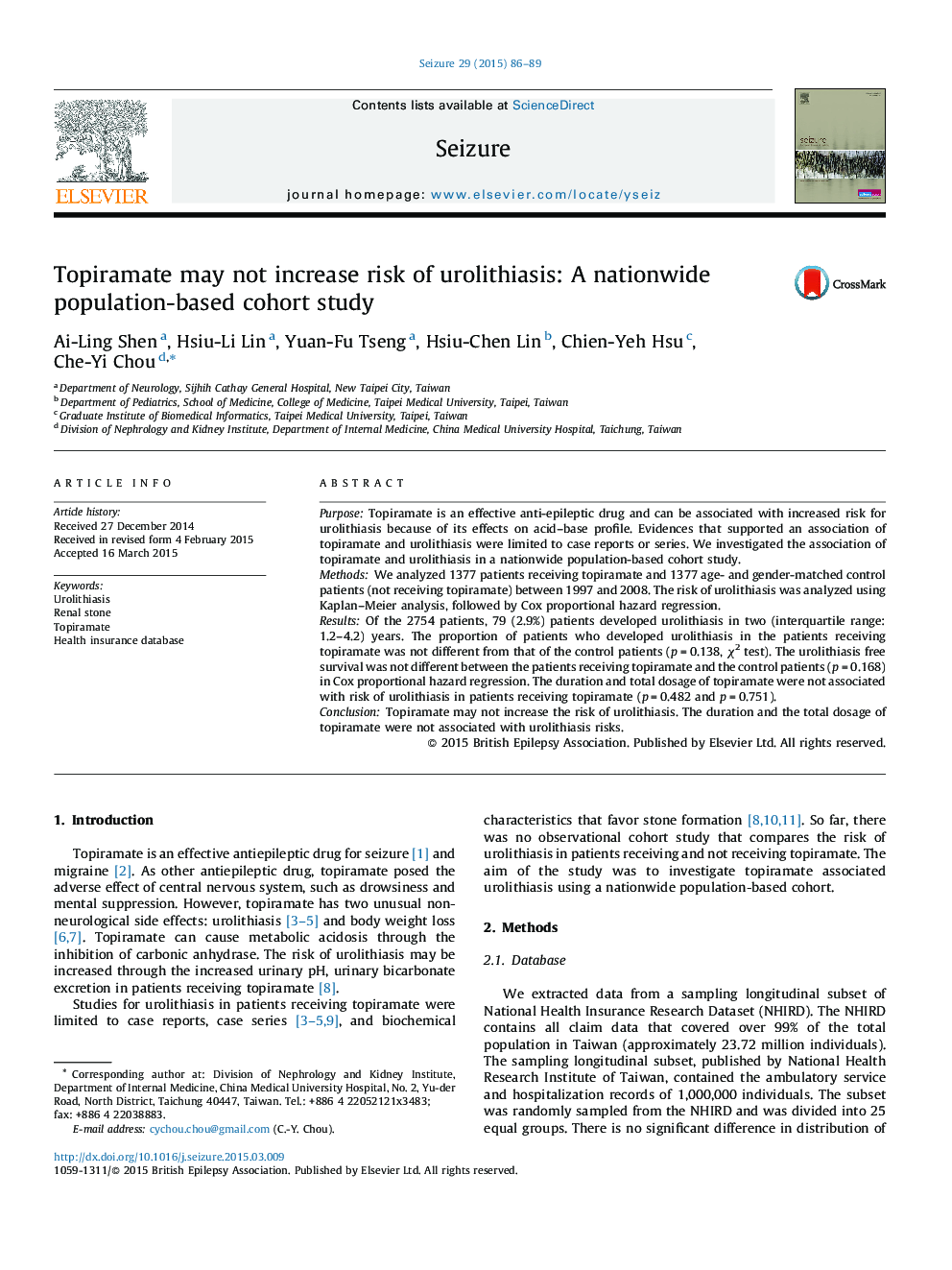| Article ID | Journal | Published Year | Pages | File Type |
|---|---|---|---|---|
| 342344 | Seizure | 2015 | 4 Pages |
•The evidences that supported the association of topiramate and urolithiasis were limited to case reports and case series.•Topiramate may not increase the risk of urolithiasis in this nationwide observational cohort study.•The duration and the total dosage of topiramate were not associated with the risk of urolithiasis.
PurposeTopiramate is an effective anti-epileptic drug and can be associated with increased risk for urolithiasis because of its effects on acid–base profile. Evidences that supported an association of topiramate and urolithiasis were limited to case reports or series. We investigated the association of topiramate and urolithiasis in a nationwide population-based cohort study.MethodsWe analyzed 1377 patients receiving topiramate and 1377 age- and gender-matched control patients (not receiving topiramate) between 1997 and 2008. The risk of urolithiasis was analyzed using Kaplan–Meier analysis, followed by Cox proportional hazard regression.ResultsOf the 2754 patients, 79 (2.9%) patients developed urolithiasis in two (interquartile range: 1.2–4.2) years. The proportion of patients who developed urolithiasis in the patients receiving topiramate was not different from that of the control patients (p = 0.138, χ2 test). The urolithiasis free survival was not different between the patients receiving topiramate and the control patients (p = 0.168) in Cox proportional hazard regression. The duration and total dosage of topiramate were not associated with risk of urolithiasis in patients receiving topiramate (p = 0.482 and p = 0.751).ConclusionTopiramate may not increase the risk of urolithiasis. The duration and the total dosage of topiramate were not associated with urolithiasis risks.
